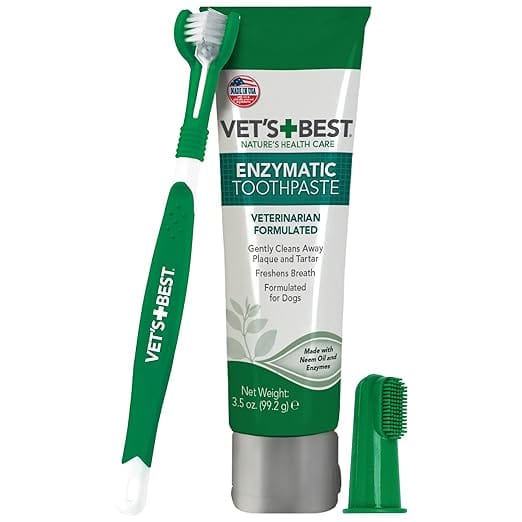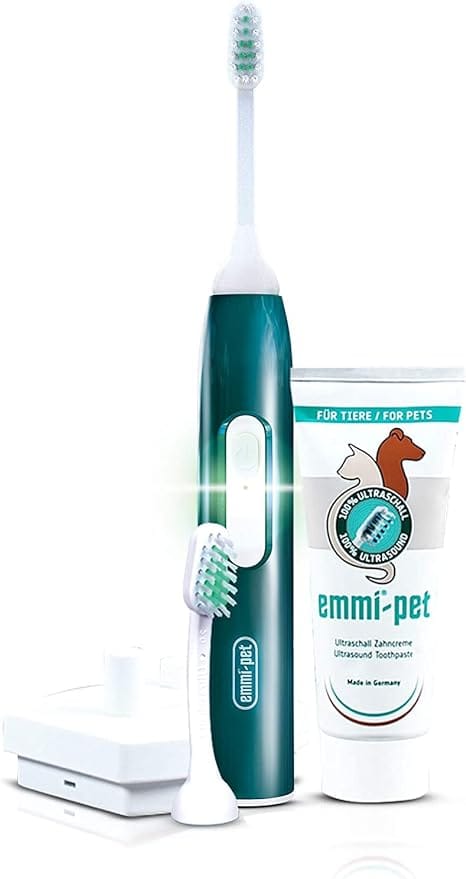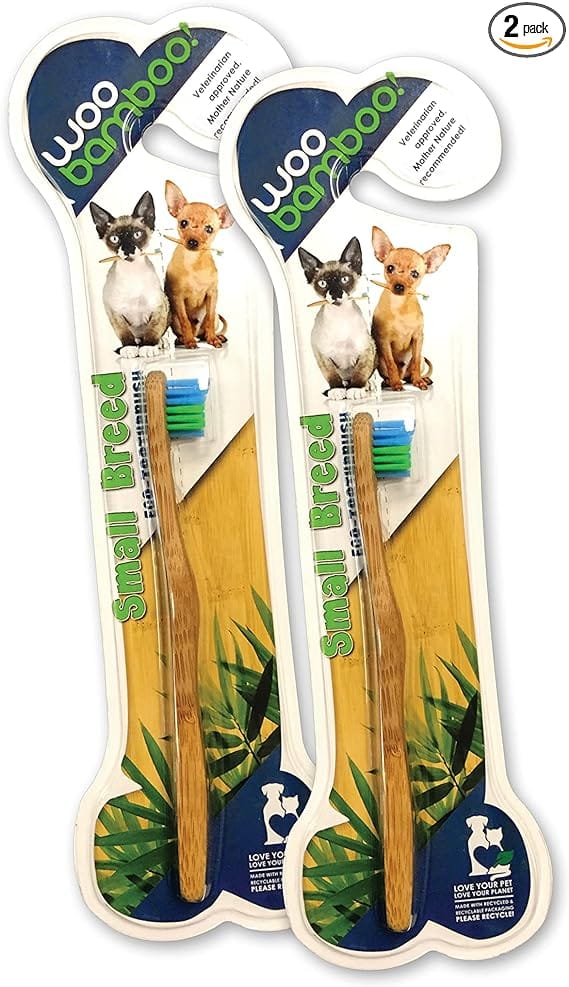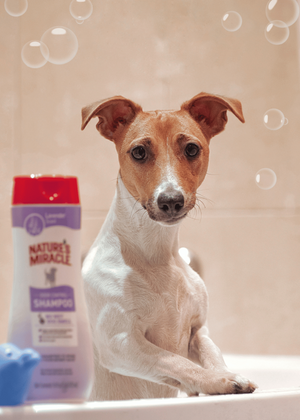Maintaining optimal dental health is not only crucial for humans but also for our beloved canine companions. Yet, many pet owners underestimate the significance of dental care in dogs.
Our furry friends rely on their teeth for various activities, from eating to playing. However, without proper dental care, dogs can suffer from a range of dental issues, including plaque buildup, tartar accumulation, gum disease, and tooth decay. These conditions not only cause discomfort and pain but can also lead to more serious health problems if left untreated.
A dog's dental hygiene directly impacts their overall well-being, from their physical health to their quality of life. Here, we will understand the importance of dental health for dogs and why investing in a good dog toothbrush matters.
We'll keep it simple and give you tips on how to choose the best dog toothbrush for your pup, plus we'll recommend some great brands to make it easier for you. So, by making sure your dog's teeth are taken care of, you're ensuring they stay healthy and happy for a long time!
The Link Between Dental Health and Overall Well-being in Dogs
Ensuring your dog's dental health isn't just about preventing bad breath or maintaining white teeth—it's about safeguarding their overall well-being.
Just like humans, dogs rely on their teeth for essential tasks, and dental issues can have significant consequences beyond discomfort. From painful conditions like gum disease and tooth decay to systemic infections that can affect vital organs, untreated dental problems can shorten your dog's lifespan and diminish their quality of life.
Chronic dental issues can also lead to decreased appetite, weight loss, and changes in behavior, impacting their energy levels and happiness. Moreover, veterinary treatment for advanced dental problems can be costly, emphasizing the importance of preventive care.
By prioritizing your dog's dental health and addressing any issues promptly, you're not just preserving their smile—you're ensuring their health, happiness, and longevity.
Understanding the Role of a Dog Toothbrush
Purpose of a Dog Toothbrush:
- Removes plaque and prevents tartar buildup
- Reduces the risk of dental issues like gum disease and tooth decay
Types of Dog Toothbrushes:
- Traditional brushes: Equipped with bristles for scrubbing teeth and gums
- Finger brushes: Worn over the fingertip for better control and access
- Electric brushes: Provide thorough cleaning, especially for resistant pets
Considerations When Choosing a Dog Toothbrush:
- Size: Select a brush appropriate for your dog's size and breed
- Comfort: Choose softer bristles or gentler motion for apprehensive pets
- Preference: Consider your dog's comfort and preferences when introducing a new brush
Importance of Dog-Safe Toothpaste:
- Human toothpaste contains harmful ingredients for dogs if ingested
- Use pet-safe toothpaste formulated with enzymatic properties
- Effective cleaning while safe for dogs to swallow
Overall Role of a Dog Toothbrush:
- Facilitates regular dental care and promotes good oral hygiene habits
- Essential for preventing dental issues and ensuring your dog's health and happiness
- Incorporate regular tooth brushing into your dog's routine for optimal dental health
How to Establish a Dental Care Routine for Your Dog
Establishing a dental care routine for your dog is essential for maintaining their oral health and preventing dental problems. Here are some steps to help you create an effective dental care regimen for your furry friend:
- Start Early: Introduce dental care to your dog as early as possible to get them accustomed to the routine. Puppies are more receptive to new experiences, making it easier to establish good habits from the beginning.
- Choose the Right Time: Pick a time when your dog is relaxed and calm for toothbrushing sessions. Avoid brushing their teeth immediately after meals, as they may be too full or energetic.
- Use Positive Reinforcement: Make toothbrushing a positive experience for your dog by offering treats, praise, or rewards after each session. This helps create a positive association with dental care and encourages cooperation.
- Introduce Toothbrush Gradually: Start by letting your dog sniff and lick the toothbrush to familiarize themselves with it. Then, gently massage their gums and teeth with your finger or a damp cloth before introducing the toothbrush.
- Choose the Right Toothpaste: Use toothpaste formulated specifically for dogs, as human toothpaste can be harmful if ingested. Let your dog taste the toothpaste first to ensure they like the flavor before applying it to the toothbrush.
- Brush Properly: Hold the toothbrush at a 45-degree angle to the teeth and use gentle, circular motions to brush both the teeth and gums. Focus on the outer surfaces of the teeth, as these areas are prone to plaque buildup.
- Be Patient and Consistent: It may take time for your dog to get used to toothbrushing, so be patient and persistent. Start with short brushing sessions and gradually increase the duration as your dog becomes more comfortable.
- Schedule Regular Check-ups: In addition to regular toothbrushing, schedule routine dental check-ups with your veterinarian. They can assess your dog's oral health and recommend any necessary treatments or procedures.
By following these steps and incorporating dental care into your dog's routine, you can help ensure their teeth and gums stay healthy and free from dental problems.
Best Dog Toothbrush to Incorporate into your Pet’s Routine
1) Vet's Best Dog Toothbrush & Toothpaste Kit

2) Emmi®-pet 2.0 Electric Toothbrush

3) Woobamboo! Eco-Friendly Small Breed Dog and Cat Bamboo Toothbrush

Prioritizing your dog's dental health is crucial for their overall well-being. By investing in regular dental care and using a suitable toothbrush, you can prevent dental issues such as plaque buildup and gum disease. Establishing a dental care routine from a young age ensures your dog becomes accustomed to the process.
Remember to use positive reinforcement, choose dog-safe toothpaste, and schedule regular check-ups with your veterinarian.
By incorporating dental care into your dog's routine, you're not just preserving their smile—you're safeguarding their health and happiness. So, take the initiative to care for your furry friend's teeth, and enjoy the rewards of a happy, healthy companion.

